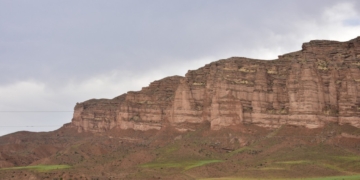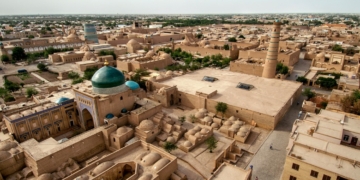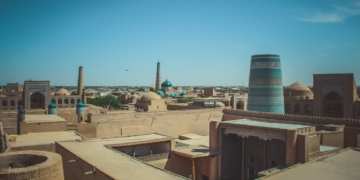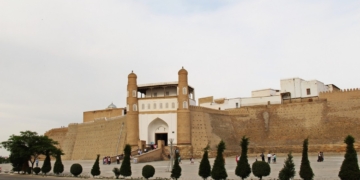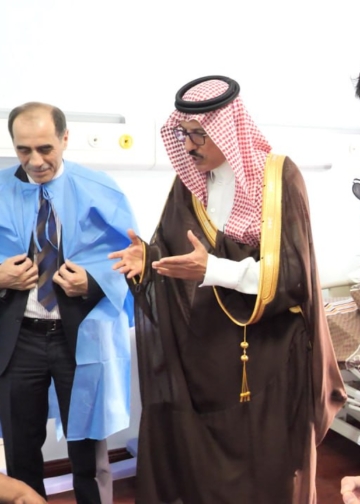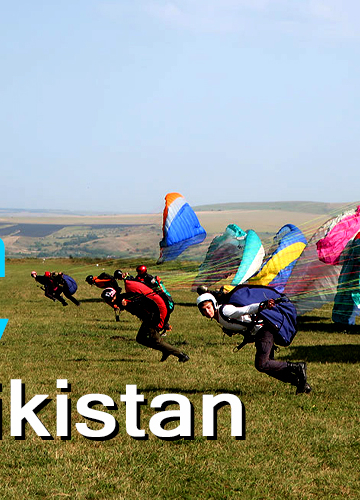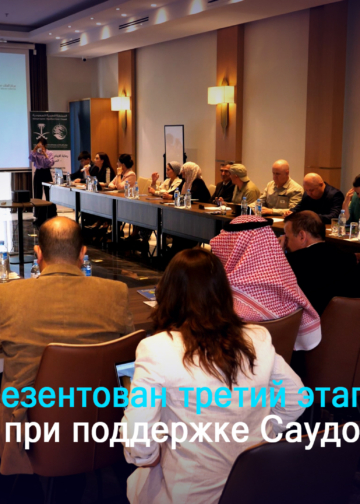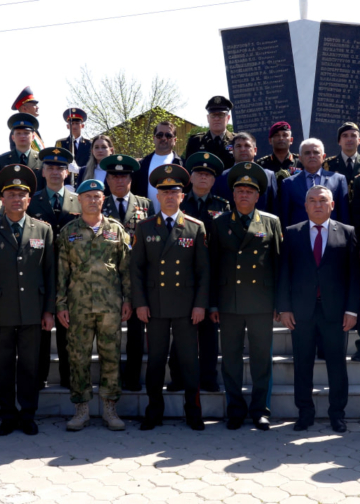id: 99013
date: 3/5/2007 8:34
refid: 07ANKARA488
origin: Embassy Ankara
classification: CONFIDENTIAL
destination: 07ANKARA383
header:
VZCZCXRO5010
PP RUEHDBU RUEHFL RUEHKW RUEHLA RUEHROV RUEHSR
DE RUEHAK #0488/01 0640834
ZNY CCCCC ZZH
P 050834Z MAR 07
FM AMEMBASSY ANKARA
TO RUEHC/SECSTATE WASHDC PRIORITY 1200
INFO RUEHZL/EUROPEAN POLITICAL COLLECTIVE PRIORITY
RUEHAH/AMEMBASSY ASHGABAT PRIORITY 1926
RUEHKB/AMEMBASSY BAKU PRIORITY 1470
RUEHEK/AMEMBASSY BISHKEK PRIORITY 0355
RUEHDB/AMEMBASSY DUSHANBE PRIORITY
RUEHBUL/AMEMBASSY KABUL PRIORITY 0036
RUEHNT/AMEMBASSY TASHKENT PRIORITY 0755
RHMFISS/HQ USEUCOM VAIHINGEN GE PRIORITY
RUEAIIA/CIA WASHDC PRIORITY
RHMFISS/HQ USCENTCOM MACDILL AFB FL PRIORITY
RHEFDIA/DIA WASHDC PRIORITY
RUEKJCS/JOINT STAFF WASHDC//J-3/J-5// PRIORITY
RHEHAAA/NSC WASHDC PRIORITY
RUEUITH/ODC ANKARA TU//TCH// PRIORITY
RUEKJCS/SECDEF WASHDC PRIORITY
RUEUITH/TLO ANKARA TU PRIORITY
RUEHAK/TSR ANKARA TU PRIORITY
RUEHAK/USDAO ANKARA TU PRIORITY
—————— header ends —————-
C O N F I D E N T I A L SECTION 01 OF 03 ANKARA 000488
SIPDIS
SIPDIS
E.O. 12958: DECL: 02/27/2022
TAGS: PREL, PGOV, TX, AJ, UZ, TI, AF, KG, TU
SUBJECT: MFA CENTRAL ASIA CONSULTATIONS IN ANKARA
REF: ANKARA 383
Classified by Deputy Polcouns Kelly Degnan for Reasons 1.4
(b,d)
1. (C) Summary: Turkey’s approach
to Central Asian countries
largely echoes ours: ensuring
security and stability,
promoting democracy and human rights and fostering economic
development and integration.
During broad consultations in
Ankara, SCA DAS Evan Feigenbaum and MFA interlocutors
explored opportunities for joint or complementary cooperation
in the areas of education, developmental assistance, regional
economic development and integration, and diversification of
energy supplies and routes. All
agreed that Turkmenistan and
Uzbekistan offered the greatest challenges for effective
engagement. Both sides agreed
that operationalizing these
ideas for cooperation is the next step.
End Summary.
2. (SBU) SCA DAS Feigenbaum and Senior Advisor Robert Deutsch
conducted a full day of consultations with Turkish government
officials on tral Asia. They also
met with representatives from
the Turkish General Staff, the Turkish International
Cooperation Agency (TICA), the Foreign Trade Undersecretariat
and the Ministry of Transportation (septel). They spoke with
businessmen, academics and intellectuals involved in Central
Asia. Following a breakfast
roundtable with journalists, the
media covered the visit in a straightforward manner.
——————-
Regional Challenges
——————-
3. (C) MFA Deputy U/S Cevikoz characterized Turkey’s approach
to Central Asia as the «Four Ds» — Democratization,
Development, Diversification and Dialogue. Turkey’s emphasis
on human rights and democracy has increased in recent years
and its trade and investment in the region continues to rise.
The GOT is pushing
diversification beyond energy through
expanding transport links.
Cevikoz cautioned that
calibrating dialogue with the region’s leaders is vital; most
reject criticism and are paranoid of outsiders. U/S Apakan
emphasized the GOT’s aim to integrate Central Asian countries
into the international community and into its grouping of
Turkic nations. Apakan asserted
these countries are allergic
to multilateral cooperation and prefer bilateral approaches.
Cevikoz reported that the 9th «Turkic Summit» will be held in
Azerbaijan this year.
4. (C) DG Uman said Turkey
considers Central Asia a
strategic region with huge natural resources. Like the U.S.,
the GOT supports independent, sovereign states moving in a
democratic direction, security, stability and regional
integration and cooperation. He
characterized the region’s
greatest challenges as slow democratization, a lack of human
rights, a difficult business and investment climate, poor
rule of law and meager education and health sectors. Uman
described the primary factors affecting regional stability as
ethnicity, porous borders and an uneven distribution of
wealth.
5. (C) DAS Feigenbaum outlined the USG’s multi-dimensional
approach, involving security, economic development and trade,
democratic reform and human rights, regional economic
integration, education, energy and transnational issues such
as counter-narcotics. These
issues are cross-cutting: better
border control leads to increased commerce, as well as
enhanced security; rule of law improves the investment
climate and improves trade even as it builds democratic
habits and institutions. He
emphasized the policy as a focus
ANKARA 00000488 002 OF 003
on the countries themselves and not as part of a «great game»
with Russia and China. The aim of
economic integration is
not just to connect Central Asia to the south, but in every
direction on the compass.
——————————-
Potential Areas for Cooperation
——————————-
6. (SBU) U/S Apakan and MFA agreed to explore opportunities
for joint and/or complementary cooperation in several areas,
including:
— Education: The GOT has granted
18,000 university
scholarships to Central Asian students since 1991 and agrees
that this area is ripe for increased engagement, particularly
in Turkmenistan. U/S Apakan
suggested specific cooperation
ideas, such as working with the GOT on its program to assist
Azerbaijan’s diplomatic training school and perhaps expanding
it to Central Asian countries and sectors such and
politicians and engineers, and exploring ways to use the
joint university programs between Turkey and the U.S. (such
as the SUNY program) as a vehicle to include Central Asian
students. They also identified
such areas as curriculum
development, expanding Turkish and American schools in the
region and increasing student exchanges.
DAS Feigenbaum
suggested that SCA’s regional education coordinator could
follow up with additional ideas.
— Other developmental assistance:
U/S Apakan and DG Uman
suggested that programs in the areas of health, agriculture
and vocational training could also be explored, particularly
between the Turkish International Cooperation Agency (TICA)
and USAID. DAS Feigenbaum urged
MFA to encourage TICA to
engage withmproving the investment
climate and rule of law is important, and suggested exploring
joint U.S-Turkey business ventures.
Senior Advisor Deutsch
briefed on regional economic integration efforts, including
the potential for regional hydropower cooperation. DG Uman
suggested that the Turkish-American Business Council explore
ways to collaborate with chambers in Central Asian countries,
perhaps in the context of public-private partnerships. They
also discussed increasing Small and Medium-Sized Enterprises
(SMEs) loans and assistance, an area in which both TICA and
USAID are active.
— Energy: Referring to the
recent delegation led by EB A/S
Sullivan to discuss regional energy issues, both sides agreed
that oil and gas cooperation is vital.
— Transnational Issues: U/S
Apakan suggested that
counter-narcotics training could be an area for joint
cooperation.
————
Turkmenistan
————
7. (C) Deputy U/S Cevikoz called
the post-Niyazov era a new
beginning but cautioned that a prudent and careful approach
is necessary and change will be slow.
DAS Feigenbaum said we
are proactive, but do not expect systemic change to come
overnight. He summarized recent
U.S. diplomacy. DG Uman
believed the performance of the new Turkmen leaders should be
watched, not just the promises.
The presidential election
process was questionable, although some Berdimuhammadov
statements were promising, e.g., on education. Turkey has
strong business interests there and some ongoing cooperation
ANKARA 00000488 003 OF 003
with U.S. businesses.
Turkmenistan’s educational sector is
in especially bad shape, Uman noted, particularly since the
government did not honor foreign diplomas nor allow students
to go abroad for education.
———-
Uzbekistan
———-
8. (C) Uzbekistan has been a big disappointment for Turkey,
Uman said. With half the
population of Central Asia, an
intelligentsia and constitutional structure and economic
opportunities, it should have been one of the most successful
states in the region. Uman, who served there as Ambassador
from 2000 to 2004, stated that no democratic channels exist.
Turkey’s political relations with the GOU are almost frozen,
he added. DAS Feigenbaum reviewed
the steps the U.S. has
taken over the last 20 months, and then noted the agenda for
his upcoming visit. Discussing
the EU’s strategy on engaging
Uzbekistan post-Andijan, Uman agreed with our message to the
EU not to confuse dialogue with substantive movement and said
Turkey has given the same advice.
Admiring a USAID-program
in Uzbekistan that fostered community participation while he
was there, Uman criticized TICA for not doing similar
programs.
——-upport of an eventual
OSCE chairmanship but noted our concern that Kazakhstan is
not yet ready in terms of standards; the United States, he
said, was prepared to work with Kazakhstan to this end. Uman
cautioned that Kazakhstan continues to look to Russia for
consent on oil and gas concessions.
Senior Advisor Deutsch
briefed on the hydropower potential of Kyrgyzstan and
Tajikistan to export electricity to South Asia. DG Uman said
Turkey should share its experience with the GAP project in
southeast Turkey.
10. (U) SCA DAS Feigenbaum has
cleared this message.
Visit Ankara’s Classified Web Site at
http://www.state.sgov.gov/p/eur/ankara/
WILSON
=======================CABLE ENDS============================
id: 99014
date: 3/5/2007 8:35
refid: 07ANKARA489
origin: Embassy Ankara
classification: CONFIDENTIAL
destination:
header:
VZCZCXRO6845
PP RUEHDBU RUEHFL RUEHKW RUEHLA RUEHROV RUEHSR
DE RUEHAK #0489/01 0640835
ZNY CCCCC ZZH
P 050835Z MAR 07
FM AMEMBASSY ANKARA
TO RUEHC/SECSTATE WASHDC PRIORITY 1203
INFO RUEHZL/EUROPEAN POLITICAL COLLECTIVE PRIORITY
RUEHAH/AMEMBASSY ASHGABAT PRIORITY 1929
RUEHKB/AMEMBASSY BAKU PRIORITY 1473
RUEHEK/AMEMBASSY BISHKEK PRIORITY 0358
RUEHDB/AMEMBASSY DUSHANBE PRIORITY
RUEHBUL/AMEMBASSY KABUL PRIORITY 0039
RUEHNT/AMEMBASSY TASHKENT PRIORITY 0758
RHMFISS/HQ USEUCOM VAIHINGEN GE PRIORITY
RUEAIIA/CIA WASHDC PRIORITY
RHMFISS/HQ USCENTCOM MACDILL AFB FL PRIORITY
RHEFDIA/DIA WASHDC PRIORITY
RUEKJCS/JOINT STAFF WASHDC//J-3/J-5// PRIORITY
RHEHAAA/NSC WASHDC PRIORITY
RUEUITH/ODC ANKARA TU//TCH// PRIORITY
RUEKJCS/SECDEF WASHDC PRIORITY
RUEUITH/TLO ANKARA TU PRIORITY
RUEHAK/TSR ANKARA TU PRIORITY
RUEHAK/USDAO ANKARA TU PRIORITY
—————— header ends —————-
C O N F I D E N T I A L SECTION 01 OF 02 ANKARA 000489
SIPDIS
SIPDIS
E.O. 12958: DECL: 02/27/2022
TAGS: PREL, PGOV, TX, AJ, UZ, TI, AF, KG, TU
SUBJECT: TURKEY EAGER TO COOPERATE ON CENTRAL ASIA
ANKARA 00000489 001.2 OF 002
Classified by Deputy Polcouns Kelly Degnan for Reasons 1.4
(b,d)
1. (C) Summary: Turkish
government officials agreed with SCA
DAS Evan Feigenbaum to explore complementary cooperation
where possible on our approaches to Central Asia (septel).
Representatives from the Turkish General Staff, the Turkish
International Cooperation Administration, the Foreign Trade
Secretariat and the Ministry of Transportation elaborated on
SIPDIS
Turkish involvement in Central Asia in meetings February 26
and offered ideas for future collaboration. End Summary.
———————
Military Cooperation
———————
2. (C) Turkish General Staff J5 LTG Hilmi Zorlu enumerated
Turkish military support to the Central Asian nations, to
include the training to date of nearly 900 Central Asian
military personnel in Turkish service academies, civilian
universities and the Partnership for Peace training center.
The Turkish military is focusing its training efforts on
changing the mentality of younger officers and soldiers.
Turkey advocates a slow, steady approach to Central Asia to
avoid exacerbating Russian concerns.
3. (C) Feigenbaum briefed Zorlu on U.S. efforts to develop
more robust security relationships with Central Asia, through
NATO,s Partnership for Peace, the establishment of military
bases such as Manas in Kyrgyzstan, and provision of training
and equipment. The U.S. and
Turkey would benefit from
coordinated its approaches and messages to Central Asian
nations. As a fellow NATO member
with troops in Afghanistan,
Feigenbaum asked for Zorlu,s support in convincing
Kyrgyzstan of the importance of our continued use of Manas
airbase to our efforts in Afghanistan.
Zorlu stressed the
importance of combining military assistance with economic aid
for civilian populations. He and
Feigenbaum agreed that we
can both work with Kazakhstan, while Uzbekistan will be more
difficult. We are just beginning
to establish a dialogue
with Turkmenistan, taking advantage of openings following
Niyazov,s death in December, Zorlu said.
4. (C) Feigenbaum explained the U.S. strategy of promoting
energy competition and free markets in Central Asia. We do
not demand Central Asians scrap existing contracts with
Russia, but rather encourage them to consider alternatives
for new production. Zorlu
highlighted persistent Russian
attempts to «break up» development of east-west energy
corridors by promoting north-south alternatives through
Armenia and Iran, or by trying to financially dominate these
corridors in the case of the Burgas route through Bulgaria
and Greece. Feigenbaum suggested
that Turkey continue to
encourage good relations between Azerbaijan and Turkmenistan
on energy and other issues.
—————————————
Development Collaboration Possibilities
—————————————
5. (C) In his meeting with Turkish International Cooperation
Administration (USAID equivalent) Acting President Mustafa
Sahin, Feigenbaum called for dialogue and cooperation with
Turkey on providing assistance to Central Asia. Sahin
described TICA as employing a «demand-driven» approach and
noted that they had field offices in all five of the Central
Asian countries. Moreover, over
half of all TICA,s
assistance goes to the Central Asia and Caucasus countries.
Feigenbaum proposed that there be contact between TICA and
USAID at the field office level and that the TICA President
visit USAID in Washington, in part to discuss USAID’s
democracy capacity building assistance.
Sahin offered that
while TICA did not provide democracy building assistance, all
of the TICA assistance contributed indirectly to this goal.
ANKARA 00000489 002 OF 002
He opined that although Uzbekistan was a difficult partner,
TICA maintains programs there related to activities
supporting vocational training, pistachio nuts, seeds, and
greenhouses.
—————————
Foreign Trade Opportunities
—————————
6. (C) DAS Feigenbaum’s meeting with Hasan Yalcin, Deputy
Director General for Agreements at the Foreign Trade
Undersecretariat (FTU), focused on U.S. efforts to improve
the investment climate in the five Central Asian Republics.
Feigenbaum cited the significant U.S. investment in these
countries and encouraged Turkish it point for Caspian oil and gas and
would be open to future collaborative efforts. He suggested
that this topic could be included in the upcoming U.S.-Turkey
Trade and Investment Framework Agreement Council meeting,
tentatively scheduled for late March or early April.
———————-
Transportation Options
———————-
7. (C) In a meeting with Suat Hayri Aka, Deputy
Undersecretary of Transport and Communications, Deutsch
described current efforts to improve roadways and air travel
in this region to compensate for the lack of railways. He
focused on efforts to improve the customs services in these
countries and to expand and improve civil aviation. U/S Aka
agreed that these countries could learn from Turkish
Airlines’ experience in the region and that perhaps Turkish
construction companies could play a role in these projects.
He expressed Turkey’s interest in future collaboration.
8. (U) SCA DAS Feigenbaum cleared
this message.
Visit Ankara’s Classified Web Site at
http://www.state.sgov.gov/p/eur/ankara/
WILSON
=======================CABLE ENDS============================
id: 99083
date: 3/5/2007 13:23
refid: 07ASHGABAT259
origin: Embassy Ashgabat
classification: CONFIDENTIAL
destination: 07ASHGABAT199
header:
VZCZCXRO5397
OO RUEHDBU
DE RUEHAH #0259/01 0641323
ZNY CCCCC ZZH
O 051323Z MAR 07
FM AMEMBASSY ASHGABAT
TO RUEHC/SECSTATE WASHDC IMMEDIATE 8490
INFO RUCNCIS/CIS COLLECTIVE PRIORITY
RUEHLM/AMEMBASSY COLOMBO PRIORITY 0212
RUEHKA/AMEMBASSY DHAKA PRIORITY 0234
RUEHIL/AMEMBASSY ISLAMABAD PRIORITY 1905
RUEHBUL/AMEMBASSY KABUL PRIORITY 0648
RUEHNE/AMEMBASSY NEW DELHI PRIORITY 0702
RHMFISS/CDR USCENTCOM MACDILL AFB FL//CCJ2/HSE/CCJ5// PRIORITY
RUEAIIA/CIA WASHDC PRIORITY
RHEFDIA/DIA WASHINGTON DC//DHO-2/REA/NMJIC-J2// PRIORITY
RHEBAAA/DEPT OF ENERGY WASHDC PRIORITY
RUCPDOC/DEPT OF COMMERCE WASHDC PRIORITY
RHEHNSC/NSC WASHDC PRIORITY
RUEKJCS/JOINT STAFF WASHDC PRIORITY
RUEKJCS/SECDEF WASHINGTON DC PRIORITY
—————— header ends —————-
C O N F I D E N T I A L SECTION 01 OF 03 ASHGABAT 000259
SIPDIS
SIPDIS
STATE FOR SCA, NSC FOR DEHART
E.O. 12958: DECL: 03/06/2007
TAGS: PREL, EPET, ENRG, PGOV, AF, KZ, TX, US, UZ, TI, IR
SUBJECT: PRESIDENT BERDIMUHAMMEDOV RECEPTIVE TO PIPELINE
DIVERSIFICATION
REF: ASHGABAT 199
Classified By: Charge d’Affaires, a.i. Jennifer L. Brush for reasons 1.
4 (B) and (D).
SUMMARY
——-
1. (C) President of Turkmenistan
Gurbanguly Berdimuhammedov
showed sincere interest in Principal Deputy Assistant
Secretary Steven Mann’s detailed March 5 presentation of
SIPDIS
alternative paths to developing the country’s energy sector.
In the context of stressing his concern for development that
benefits his country and the need to review PDAS Mann’s
points with his own advisors, Berdimuhammedov was generally
open to suggestions that Turkmenistan seek expertise from
U.S. and Western energy sector companies and should attract
foreign investment.
Berdimuhammedov was also favorable to
the idea of talking to Azerbaijan in order to resolve the
issue of Caspian Sea delineation.
Although the meeting
focused on energy issues, PDAS Mann presented U.S. support
for Turkmenistan in this field within the broader context of
seeing genuine political, economic, and social reform. END
SUMMARY
OPEN EARS TO ENERGY SECTOR DEVELOPMENT; EXPORT DIVERSIFICATION
—————————————
2. (C) President Berdimuhammedov
opened his March 5 meeting
with Mann by welcoming the latter’s detailed analysis of
Turkmenistan’s energy resources and their prospects for
development, extraction and export.
During the meeting,
Berdimuhammedov and his Deputy Chairman for Foreign Affairs
Rashit Meredov listened with interest and accepted several
handouts detailing estimates of future prospects for
Turkmenistan,s gas and oil exports, given various investment
scenarios. Mann stressed that the
overarching U.S. interest
in Turkmenistan’s energy sector development was to see that
the country maintained its independence and sovereignty
through multiple outlets of its energy exports.
3. (C) In his overview, Mann
first presented the vast
potential of Turkmenistan’s gas and oil reserves, as
developed by USDOC expert Paul Hueper.
Mann briefed on the
recent IEA gas conference in Paris and the excellent
prospects for European demand and then provided a frank
discussion of the context in which Russia,s Gazprom held a
virtual monopoly over gas exports from Turkmenistan, limiting
the country’s options and profits.
He also pointed to the
Primorsk pipeline and Sakhalin-2 as examples of the
unconstrained monopoly power of Transneft and Gazprom. As a
result of this context, pipeline diversification brought
major benefits in order to have more than one way to reach
world markets and reduce Turkmenistan,s dependence on
Russian monopolies. Mann also
noted that future extractions
of natural gas in Turkmenistan would require world-class
technology. In comparing high,
medium and current levels of
investment, Mann noted that current levels would ultimately
result in a fall in overall production due to these concerns.
A favorable investment climate
therefore was necessary in
order to attract a world-class level of development. He also
described the role of American and Western energy companies
in other parts of the region as reliable partners who
invested in infrastructure and education in the course of
their partnership, noting that these benefits would coincide
with many of Berdimuhammedov’s recently initiated reforms in
education.
4. (C) PDAS Mann also raised the
issue of Caspian Sea
delimitation as an unresolved issue which still hindered
development of the energy sector.
He offered U.S. support
for efforts to find agreement with Azerbaijan on this issue.
He suggested that an agreement would open the way for the
«Serdar» field to produce no less than 500,000 barrels per
day of potential exports.
ASHGABAT 00000259 002 OF 003
5. (C) Mann stressed that in
order to be successful,
Turkmenistan would have to rid itself of a Soviet, state
mentality with regard to its economy and energy sector. The
TCP project of 1997-2000 failed because of this mentality.
He stressed at various points that the true test of
reliability as a trading partner was not government
pronouncements but whether or not private companies would
actually take the risk to invest and construct pipelines or
extract resources.
POSITIVE BUT CAUTIOUS RESPONSE
——————————
6. (C) Berdimuhammedov appeared
to be impressed by the
presentation but said that Turkmenistan’s data differed from
that Mann presented. He believed the level of reserves was
considerably higher. He stressed
his need to review the
subject and Mann,s provided figures with his own advisors
and government. However, he
expressed an openness to
discussing the issue in the future with U.S. experts and a
general willingness to cooperate in the future.
7. (C) The president also placed
emphasis on the fact that
his government was still new and there was still a need to
review policy before taking major decisions. He noted his
interest in foreign investment and the additional benefits
that could come from education and exchange with U.S.
companies or experts. All the
while, he stressed his role as
president to make decisions for the benefit of his people.
He stated in an even tone that Turkmenistan would continue
the policy line on energy established by Turkmenbashi,
including existing contracts with Russia. Mann stressed that
it was not the U.S. desire to disturb any existing
arrangements but to focus on the future; the U.S. respects
Turkmenistan’s continuing relationships with Russia and
China.
FIRST STEP ON RESOLVING THE CASPIAN DELIMITATION?
————————————
8. (C) Berdimuhammedov clearly
welcomed Mann’s suggestion of
U.S. support in trying to resolve the disputed delineation of
its Caspian Sea border with Azerbaijan and was open to the
prospect of experts’ talks to further advance the
possibilities for tapping into the region,s energy reserves.
He looked forward to discussing
the issue personally with
President Aliyev and said he had a positive view of Aliyev.
9. (C) However, Berdimuhammedov
was careful to flag that
commercial disputes might arise in future energy development
and that Turkmenistan would have to defend its interests
vigorously. Mann accepted that
and advised that Turkmenistan
had not been getting the full benefit of its energy
resources, thanks to the lack of a pricing formula for
natural gas sales. Mann attempted
to ease the president’s
concerns by noting that the U.S. interest in pipeline
diversification was in preserving the independence and
sovereignty of the region,s countries, first and foremost by
decreasing their reliance on the Russian Gazprom monopoly.
What Turkmenistan needs above all for hydrocarbon development
is to attract the serious interest of major firms. The small
concerns that operate in Turkmenistan now — as well as the
Russians and Chinese — are not up to the major tasks and
Turkmenistan must take steps to attract world-class energy
firms.
BROADER CONTEXT OF BILATERAL RELATIONSHIP: REFORM NEEDED
——————————————
10. (C) Towards the end of the meeting,
Mann also noted the
increased Washington interest in Turkmenistan, due partly to
Berdimuhammedov’s statements and initial steps towards
reform. Mann noted that
cooperation between the two
countries depended also on improvement in the political
ASHGABAT 00000259 003 OF 003
relationship. This has
consequences for energy as well as
for other issues. Foreign firms
consider Turkmenistan a bad
risk, given Bridas’ and Sheraton’s experience, and until rule
of law and a stable investment climate are more firmly
established, it will be a hard sell to bring those firms in.
COMMENT
——-
11. (C) Berdimuhammedov,s brief
comments on preserving the
status quo appeared to reflect
necessary lip service as well
as a wariness that the U.S. would be urging conflict with
Russia. That topic disposed of,
the President followed the
discussion in detail and with real interest and gave an
unequivocal green light to develop the
government-to-government relationship on energy. The
discussion of Caspian delimitation was notably positive both
for the lack of Niyazovist bluster as well as for the quietly
reasonable willingness to engage with Azerbaijan. His
tentative but positive response to foreign investment and
export diversification in the energy sector probably reflects
his lack of expertise in the field and his still-forming
energy policy. It’s clear that he
has little familiarity
with the way the private sector works at a serious level.
Still, his comments throughout the meeting seemed to reflect
a sincere interest in examining and addressing the range of
issues we raised. The president,s
willingness to talk
further on the topic, his welcoming words on foreign
investment and a stated readiness to work with Azerbaijan all
represent positive signs for future energy development in
Turkmenistan.END COMMENT
BRUSH
=======================CABLE ENDS============================
id: 99398
date: 3/7/2007 11:56
refid: 07DUSHANBE335
origin: Embassy Dushanbe
classification: UNCLASSIFIED
destination:
header:
VZCZCXRO8239
RR RUEHLN RUEHVK RUEHYG
DE RUEHDBU #0335 0661156
ZNR UUUUU ZZH
R 071156Z MAR 07
FM AMEMBASSY DUSHANBE
TO RUEHC/SECSTATE WASHDC 9753
INFO RUCNDT/USMISSION USUN NEW YORK 1402
RUCPDOC/USDOC WASHDC 0144
RUEHAK/AMEMBASSY ANKARA 1957
RUEHBJ/AMEMBASSY BEIJING 1939
RUEHRL/AMEMBASSY BERLIN 1867
RUEHBS/USEU BRUSSELS 1184
RUEAIIA/CIA WASHDC
RUCNCIS/CIS COLLECTIVE
RHEFDIA/DIA WASHINGTON DC
RUEHDBU/AMEMBASSY DUSHANBE 1373
RUEHIL/AMEMBASSY ISLAMABAD 2039
RUEHBUL/AMEMBASSY KABUL 2000
RUEHML/AMEMBASSY MANILA 0147
RUEHNE/AMEMBASSY NEW DELHI 2015
RHEHAAA/NSC WASHINGTON DC
RUEHFR/AMEMBASSY PARIS 1603
RUEKJCS/SECDEF WASHDC
RUEHKO/AMEMBASSY TOKYO 1622
RUEHVEN/USMISSION USOSCE 1920
—————— header ends —————-
UNCLAS DUSHANBE 000335
SIPDIS
SIPDIS
STATE FOR SCA/CEN
E.O. 12958: N/A
TAGS: EINV, ECON, EFIN, EIND, EAID, ETRD, PGOV, TI
SUBJECT: AGAINST THE GRAIN — IMPROVING THE INVESTMENT CLIMATE IN
TAJIKISTAN
1. (U) SUMMARY. The newly-formed State Committee on
Investments and State Property will seek to attract foreign
direct investment to Tajikistan.
However, the committee has few
tools and resources to fully realize its well intentioned
programs. U.S. technical
assistance will support the committee
in its uphill battle to improve the investment climate. END
SUMMARY.
2. (SBU) In an introductory
meeting with the Ambassador
February 28, Committee Chair Sharif Rahimov explained that the
new committee hoped to help foreign investors by creating an
English-language website and by establishing a «one-stop-shop»
for registration and licensing in Tajikistan. Rahimov and his
staff understand that the information vacuum prevents foreign
companies from investigating investment opportunities in
Tajikistan. Rahimov would also
like to create a fund to provide
micro-credit to small and medium businesses. «Medium-sized
businesses most want a stable economy, so we need to work with
them more than with small or big businesses,» Rahimov remarked,
asserting that both small and big businesses evade the law
rather than work with it.
3. (U) The committee faces severe
financial problems in
implementing its program. The
committee has no email or
computer network for document sharing; they lack funds for
translating documents into English; and cannot afford to pay for
web design. Rahimov requested
U.S. technical assistance to
train the committee’s staff, to help create the website, to
review legislation, identify and eliminate barriers for the
private sector, and develop registration procedures and
investment packages for foreign investors.
4. (U) USAID’s new Business
Environment Improvement Project
implemented by Pragma will provide the committee technical
assistance in drafting laws, conducting analysis, and liaising
with the private sector.
Increasing the capacity of this
committee would positively improve the investment climate in
Tajikistan; however, lack of funding prevents us from providing
the necessary assistance.
5. (SBU) COMMENT: The creation of
the new State Committee on
Investments, like the new Anti-Corruption Agency, should be seen
as a positive indicator that President Rahmonov and his
government recognize the importance of these issues. However,
in order to have an impact beyond window dressing, the new
institutions will need both further Government of Tajikistan
resources, as well as foreign assistance. Challenging the
status quo and those who benefit from it is a long-term process
requiring substantial political will.
JACOBSON
=======================CABLE ENDS============================
id: 99701
date: 3/9/2007 4:59
refid: 07DUSHANBE337
origin: Embassy Dushanbe
classification: SECRET
destination:
header:
VZCZCXRO0474
RR RUEHTRO
DE RUEHDBU #0337 0680459
ZNY SSSSS ZZH
R 090459Z MAR 07
FM AMEMBASSY DUSHANBE
TO RUEHC/SECSTATE WASHDC 9756
INFO RUCNCIS/CIS COLLECTIVE
RUEHIL/AMEMBASSY ISLAMABAD 2040
RUEHNE/AMEMBASSY NEW DELHI 2016
RUEHBUL/AMEMBASSY KABUL 2001
RUEAIIA/CIA WASHDC
RHEFDIA/DIA WASHINGTON DC
RHEHAAA/NATIONAL SECURITY COUNCIL WASHINGTON DC
RUCNDT/USMISSION USUN NEW YORK 1403
RUEHII/VIENNA IAEA POSTS COLLECTIVE
RUEHDBU/AMEMBASSY DUSHANBE 1376
—————— header ends —————-
S E C R E T DUSHANBE 000337
SIPDIS
SIPDIS
ISN, EB, NEA, IO, VCI, P, T, TFI
E.O. 12958: DECL: 3/7/2017
TAGS: KNNP, UNSC, AORC, ETRD, TRGY, IR, TI
SUBJECT: TAJIK RESPONSE TO DEMARCHE ON IRANIAN NON-COMPLIANCE WITH
UNSCR 1737
REF: STATE 23001, STATE 24344
CLASSIFIED BY: David Froman, Economic Officer, Pol/Econ, DOS.
REASON: 1.4 (b)
1. (C) PolOff delivered ref demarches regarding the
Iranian
government’s non-compliance with United Nations Security Council
Resolution (UNSCR) 1737 to Ismatullo Nasredinov, Chief of the
American Countries Branch, Tajik Ministry of Foreign Affairs.
Nasredinov replied that the Tajik government opposed Iran’s
nuclear program, even for peaceful purposes. They believe that
Iran’s abundant oil and gas supplies are sufficient to supply
Iran’s energy needs. However, the
Tajik government is not
willing to approach the Iranian government on this issue, due to
the solid economic relationship that currently exists between
the two countries. Nasredinov
added that Iran and Tajikistan
have good relations in the spheres of culture, science and
energy, and any perceived pressure by the Tajik government could
threaten the positive nature of their bilateral cooperation.
2. (C) Nasredinov noted that Tajikistan was a small
country
with many economic problems, and that they needed to attract
investment and economic aid from as many different countries as
possible. He remarked that if
larger countries such as the
United States, Russia and China were not able to influence the
Iranian government, he doubted that a small country such as
Tajikistan would hold any weight.
JACOBSON
=======================CABLE ENDS============================
id: 99774
date: 3/9/2007 11:28
refid: 07DUSHANBE348
origin: Embassy Dushanbe
classification: UNCLASSIFIED
destination: 07DUSHANBE348|07STATE22077
header:
VZCZCXRO0911
RR RUEHLN RUEHVK RUEHYG
DE RUEHDBU #0348/01 0681128
ZNR UUUUU ZZH
R 091128Z MAR 07
FM AMEMBASSY DUSHANBE
TO RUEHC/SECSTATE WASHDC 9771
INFO RUEHAK/AMEMBASSY ANKARA 1961
RUEHBJ/AMEMBASSY BEIJING 1940
RUEHRL/AMEMBASSY BERLIN 1868
RUEHBS/USEU BRUSSELS 1185
RUEAIIA/CIA WASHDC
RUCNCIS/CIS COLLECTIVE
RHEFDIA/DIA WASHINGTON DC
RUEHIL/AMEMBASSY ISLAMABAD 2041
RUEHBUL/AMEMBASSY KABUL 2002
RUEHNE/AMEMBASSY NEW DELHI 2017
RHEHAAA/NSC WASHINGTON DC
RUEKJCS/SECDEF WASHINGTON DC
RUEHVEN/USMISSION USOSCE 1921
RUCPDOC/USDOC WASHDC 0145
RUEHDBU/AMEMBASSY DUSHANBE 1395
—————— header ends —————-
UNCLAS SECTION 01 OF 02 DUSHANBE 000348
SIPDIS
SIPDIS
STATE FOR SCA/CEN
E.O. 12958: N/A
TAGS: SMIG, ELAB, ECON, PINR, TI, RS
SUBJECT: TAJIK GOVT REACTION TO RUSSIAN MIGRATION LAW (C-RE7-00278)
REF: STATE 022077
DUSHANBE 00000348 001.2 OF 002
1. (U) In a meeting with PolOff
March 1, head of the State
Social Protection, Employment and Migration Agency Anvar Boboev
appeared optimistic that Russia’s new migration law would make
it easier for Tajik labor migrants to travel to, register, and
obtain work permits in Russia.
Prior to the government
reorganization in December, Boboev headed the State Migration
Service, which was then subsumed into the larger agency and
folded into the Ministry of Labor and Social Protection.
Despite the expanded portfolio, migration issues continue to
occupy most of Boboev’s time.
2. (U) Publicly, the government
has not expressed concern with
Russia’s new law, stating that it will make it easier for Tajik
labor migrants to easily register and work in Russia.
Tajikistan has a visa-free regime with Russia. According to
Boboev, the new law means that a Tajik migrant can enter Russia,
show an employer his migration card, international passport and
a receipt showing that he has paid his labor migration fee and
be considered a legal migrant.
Critics say that although
migrants can register legally, employers may still tend to hire
illegal migrants in order to avoid paying social benefit taxes
to the government.
3. (U) Russia set Tajikistan’s
migrant quota at 600,000, far
below the one million currently believed to be working in
Russia. Although the Tajik
government publicly acknowledges
that between 500,000-600,000 Tajiks are in Russia working as
labor migrants, the government has petitioned Russia to increase
the quota to 800,000. Boboev
explained that the government
requested the 200,000 increase to accommodate the seasonal
migrants who travel frequently between the countries and for a
future overall population increase.
He did not know if Russia
would approve the increase, but was optimistic, citing
Tajikistan’s close relationship with Russia. Tajikistan relies
heavily on the over $1 billion in remittances from workers in
Russia. The earnings prop up
Tajikistan’s local consumption
boom.
4. (U) The bulk of Tajik labor
migrants — approximately 46
percent — work as low-skill laborers in construction; 20 percent
work in Russia’s markets; while the remainder work in health,
education, and other sectors.
Boboev pointed out that although
many Tajik migrants are skilled in technical trades such as auto
mechanics, many do not have certificates validating their
skills. The Tajik government
plans to establish training
centers to teach short-term courses and certify technical skills
for migrants. These certificates
will be valid in Russia as
well.
5. (U) Boboev cited that Russia
deported 17,000 Tajik migrants
in 2005, but only 6,100 in 2006.
He attributes the drastic
decrease to increased migrant awareness and education. Boboev
predicts that Russia will deport even fewer migrants this year.
6. (U) Although publicly the
Tajik government has not expressed
concern about Russia’s new immigration law, the government is
bracing itself for an influx of migrants returning from Russia.
According to Boboev, the government aims to create more job
opportunities in Tajikistan by improving economic conditions for
small and medium-sized enterprises, with a particular emphasis
on developing job opportunities for women. Boboev did not
explain what steps the government would take to make this
happen. Returnees face bleak job
prospects in a 20 percent
unemployment market, and many local citizens fear an uptick in
crime.
7. (U) It is still too early to
gauge the law’s impact, and the
general population’s response has been muted. Local
non-governmental organizations that serve as migrant information
centers agree with the government’s prognosis that the law will
be a positive development and will encourage more migrants to
register legally. The centers are
ready to educate migrants on
the new law and their rights.
8. (U) COMMENT: Although the new law may encourage Tajik
labor
migrants to register legally, it does not address the migration
DUSHANBE 00000348 002.2 OF 002
problems most Tajiks are concerned about. Tajiks suffer
horrible living and working conditions in Russian and cases of
extreme and violent racism are not rare.
Every year, more than
a few migrants return to Tajikistan in body bags. Corrupt
ticket consolidators charge migrants triple for Tajik Air
tickets to and from Russia.
However, at least they have jobs in
Russia. If Russia closes its
doors, Tajiks will likely pursue
openings in other countries. END
COMMENT.
JACOBSON
=======================CABLE ENDS============================
id: 100027
date: 3/12/2007 15:35
refid: 07DUSHANBE351
origin: Embassy Dushanbe
classification: UNCLASSIFIED
destination:
header:
VZCZCXRO2767
OO RUEHDBU
DE RUEHDBU #0351/01 0711535
ZNR UUUUU ZZH
O R 121535Z MAR 07
FM AMEMBASSY DUSHANBE
TO RUEHC/SECSTATE WASHDC IMMEDIATE 9777
INFO RUEHDBU/AMEMBASSY DUSHANBE 1401
—————— header ends —————-
UNCLAS SECTION 01 OF 03 DUSHANBE 000351
SIPDIS
SIPDIS
E.O. 12958: N/A
TAGS: PHUM, PREL, SNAR, TI
SUBJECT: DUSHANBE LEAHY VETTING REQUEST:
DCA, MINISTRY OF INTERIOR
AND US EMBASSY PERSONNEL
1. This is an action cable. See
paragraph 4.
2. Post has been asked to conduct a human rights review for the
following personnel from the Drug Control Agency Under the
President of the Republic of Tajikistan and Tajik Ministry of
Interior appointed to attend drivers training courses organized
by the Department of Justice and funded by INL. U.S. Embassy
national staff are also included.
A. LAST NAME: Butaev
FIRST NAME: Shuhrat
DOB: 12.09.1971
POB: Tajikistan
RANK: Junior Lieutenant
POSITION: Inspector of the 3d Mobile detachment
AGENCY: Drug Control Agency
B. LAST NAME: Zayniddinov
FIRST NAME: Kamoliddin
DOB: 01.07.1969
POB: Tajikistan
RANK: Sergeant Major
POSITION: Driver of the financial management department
AGENCY: Drug Control Agency
C. LAST NAME: Khuseinov
FIRST NAME: Anvar
DOB: 04.06.1969
POB: Tajikistan
RANK: Sergeant Major
POSITION: Driver of the financial management department
AGENCY: Drug Control Agency
D. LAST NAME: Boltaev
FIRST NAME: Alisher
DOB: 05.08.1964
POB: Tajikistan
RANK: Sergeant Major
POSITION: Driver of the financial
management department
AGENCY: Drug Control Agency
E. LAST NAME: Ochilov
FIRST NAME: Nazri
DOB: 31.05.1963
POB: Tajikistan
RANK: Sergeant Major
POSITION: Driver of the financial management department
AGENCY: Drug Control Agency
F. LAST NAME: Jinaev
FIRST NAME: Saivali
DOB: 22.04.1978
POB: Tajikistan
RANK: Sergeant Major
POSITION: Driver of the financial management department
AGENCY: Drug Control Agency
G. LAST NAME: Ashurov
FIRST NAME: Kamoliddin
DOB: 16.10.1972
POB: Pendjikent
RANK: Ensign Lieutenant
POSITION: engineer, senior inspector on road trafficking
AGENCY: Ministry of Interior
H. LAST NAME: Davlatov
FIRST NAME: Adbulahat
DOB: 07.04.1966
POB: Rudaki District
RANK: Ensign Lieutenant
POSITION: MoI motorpool driver
AGENCY: Ministry of Interior
I. LAST NAME: Salohov
FIRST NAME: Ayniddin
DOB: 09.04.1965
POB: Dushanbe
RANK: Ensign Lieutenant
POSITION: MoI motorpool driver
AGENCY: Ministry of Interior
J. LAST NAME: Kholov
FIRST NAME: Toir
DOB: 04.11. 1963
POB: Lenin District
RANK: Sergeant Major
POSITION: MoI motorpool driver
AGENCY: Ministry of Interior
K. LAST NAME: Sanoev
FIRST NAME: Dilshod
DOB: 26.01.1963
POB: Dushanbe
DUSHANBE 00000351 002 OF 003
RANK: Sergeant Major
POSITION: MoI motorpool driver
AGENCY: Ministry of Interior
L. LAST NAME: Gulov
FIRST NAME: Rajab
DOB: 20.12.1962
POB: Dushanbe
RANK: Sergeant
POSITION: MoI motorpool driver
AGENCY: Ministry of Interior
M. LAST NAME: Safarova
FIRST NAME: Nigora
DOB: 18.02.1982
POB: Dushanbe
POSITION: SLEA Program Management Assistant
AGENCY: US Embassy
N. LAST NAME: Ganieva
FIRST NAME: Dilorom
DOB: 21.03.1976
POB: Dushanbe
POSITION: EXBS Program Assistant
AGENCY: US Embassy
O. LAST NAME: Nozilov
FIRST NAME: Suhrob
DOB: 30.09.1975
POB: Hissar
POSITION: Real Estate/Procurement Assistant
AGENCY: US Embassy
P. LAST NAME: Saidov
FIRST NAME: Bozor
DOB: 02.09.1956
POB: Tajikistan
POSITION: AID Driver
AGENCY: US Embassy
Q. LAST NAME: Rahmatov
FIRST NAME: Anvar
DOB: 28.03.1949
POB: Tajikistan
POSITION: AID Driver
AGENCY: US Embassy
R. LAST NAME: Zaripov
FIRST NAME: Rustam
DOB: 23.08.1955
POB: Tajikistan
POSITION: AID Driver
AGENCY: US Embassy
S. LAST NAME: Akramov
FIRST NAME: Khurshed
DOB: 13.02.1978
POB: Pendjikent
POSITION: GSO + Pol/Mil Driver
AGENCY: US Embassy
T. LAST NAME: Nabiev
FIRST NAME: Mamatkul
DOB: 20.03.1960
POB: Leninskiy District
POSITION: COM Driver
AGENCY: US Embassy
U. LAST NAME: Mirov
FIRST NAME: Anvar
DOB: 25.07.1963
POB: Dushanbe
POSITION: GSO + COM Driver
AGENCY: US Embassy
V. LAST NAME: Nazarov
FIRST NAME: Amirshho
DOB: 25.05.68
POB: Vanj
POSITION: COM Driver
AGENCY: US Embassy
W. LAST NAME: Alimov
FIRST NAME: Shokir
DOB: 04.06.1963
POB: Dushanbe
POSITION: GSO Driver
AGENCY: US Embassy
X. LAST NAME: Bobojonov
FIRST NAME: Nabijon
DOB: 08.02.1972
POB: Dushanbe
DUSHANBE 00000351 003 OF 003
POSITION: GSO Driver
AGENCY: US Embassy
Y. LAST NAME: Sharipov
FIRST NAME: Bakhtiyor
DOB: 29.11.1968
POB: Dushanbe
POSITION: GSO Driver
AGENCY: US Embassy
Z. LAST NAME: Yasaviev
FIRST NAME: Saidamir
DOB: 15.04.1972
POB: Dushanbe
POSITION: GSO Driver
AGENCY: US Embassy
3. Post has no credible information of gross violations of human
rights by any of the listed participants.
4. Action requested: Post
requests that Department check the
names against its databases and inform Post if no derogatory
information was found.
Unfortunately, the GOT provided the
above names to Post today and the course is set to begin on
March 15. Department is kindly
requested to expedite processing
of this human rights review.
Point of contact at Post is INL
Officer Ranjeet Singh at [email protected].
JACOBSON
=======================CABLE ENDS============================
id: 100131
date: 3/13/2007 11:17
refid: 07DUSHANBE355
origin: Embassy Dushanbe
classification: UNCLASSIFIED//FOR OFFICIAL USE ONLY
destination: 07DUSHANBE355
header:
VZCZCXRO3585
RR RUEHLN RUEHVK RUEHYG
DE RUEHDBU #0355/01 0721117
ZNR UUUUU ZZH
R 131117Z MAR 07
FM AMEMBASSY DUSHANBE
TO RUEHC/SECSTATE WASHDC 9783
INFO RUCNCIS/CIS COLLECTIVE
RUEAIIA/CIA WASHDC
RHEFDIA/DIA WASHINGTON DC
RHEHAAA/NATIONAL SECURITY COUNCIL WASHINGTON DC
RUCNDT/USMISSION USUN NEW YORK 1404
RUEHVEN/USMISSION USOSCE 1923
RUEHBJ/AMEMBASSY BEIJING 1942
RUEHIL/AMEMBASSY ISLAMABAD 2043
RUEHBUL/AMEMBASSY KABUL 2010
RUEHNE/AMEMBASSY NEW DELHI 2019
RUEKJCS/SECDEF WASHDC
RUEHBS/USEU BRUSSELS 1187
RUEHDBU/AMEMBASSY DUSHANBE 1411
—————— header ends —————-
UNCLAS SECTION 01 OF 02 DUSHANBE 000355
SIPDIS
SENSITIVE
SIPDIS
STATE FOR SCA/CEN, DRL
E.O. 12958: N/A
TAGS: PGOV, PHUM, KDEM, TI
SUBJECT: TAJIKISTAN’S INDEPENDENT MEDIA PROCEEDS WITH CAUTION AFTER
ELECTION
DUSHANBE 00000355 001.2 OF 002
1. (U) SUMMARY:
Tajikistan’s independent media is breathing
slightly easier after the presidential election. In a lunch
hosted by EmbOffs March 1, eight independent journalists opened
up about the media environment.
Most admitted that although the
government has relaxed pressure on independent media, they are
wary of the new-found freedom and the government continues to
harass some journalists. END
SUMMARY:
2. (U) Independent journalists
told EmbOffs that after the
November 2006 presidential election, they have encountered less
government pressure and have continued to push the boundaries by
publishing articles critical of the government and government
officials. The government now
permits Mukhtor Boqizoda, an
independent newspaper editor, to publish his paper Nerui Sukhan.
Boqizoda was found guilty of
stealing electricity in 2005 and
given the unusual sentence of correctional labor, rather than a
fine, as is customary for such «administrative» violations.
Observers in the independent press feel the charge was a ruse to
force Boqizoda to cease printing his paper.
RADIO FREE EUROPE, NOT FREE TO OPERATE
3. (SBU) Despite some media freedom concessions, the
government still closely monitors the media. One example of
ongoing government pressure surrounds the controversial new
urban plan. In December 2006,
Radio Free Europe/ Radio Liberty
broadcast a story about Dushanbe’s new urban plan which
threatens to displace residents from the city center with
minimal compensation. According
to Embassy sources one of Radio
Free Europe/Radio Liberty’s sources of information alleged
corrupt parties are behind the urban planning. After the
report, the mayor’s office sent Radio Free Europe/Radio Liberty
a letter stating that the story was one-sided and portrayed the
city government in a negative light.
It demanded Radio Free
Europe/Radio Liberty issue a public apology. Radio Free
Europe/Radio Liberty’s source has since, in a written statement,
denied ever making the comments to the correspondent. Some
believe the mayor’s office pressured the source into signing the
statement. To date, Radio Free
Europe/Radio Liberty has not
issued a public apology and the government has not pursued legal
action.
4. (SBU) Incidents such as the recent pressure on
Radio Free
Europe/Radio Liberty remind journalists that the government is
watchful of their reporting.
Journalists continue to exercise
self-censorship. One journalist
said that despite an overall
improvement in government attitude, he would not bother to
publish his once shut-down paper and risk the government’s
wrath.
NO DAILY PAPERS ON THE CORNER
5. (U) Access to news remains a problem in
Tajikistan. The
majority of towns and villages outside of the capital, receive a
limited number of hours of electricity every day meaning that
television and internet are rendered inaccessible most of the
time. Tajikistan does not have a
daily newspaper and without
regular television or internet access, most have to rely on
once-a-week newspapers published every Thursday. When asked why
Tajikistan does not have a daily newspaper, the journalists
offered many excuses for the absence of a daily newspaper,
citing a lack of proper distribution channels as the main
culprit. According to the
journalists, it is very difficult to
distribute newspapers to Tajikistan’s more rural areas. Even
within Dushanbe, there is no reliable distributor and often the
companies pay children or old women to sell newspapers on a
street corner. In the past, the
government has shut down some
corner news kiosks citing the possibility of terrorists using
them to place bombs. In Kulyab, a
district in southern
Tajikistan of approximately 80,000 people, a single vendor sells
300 issues of papers brought from Dushanbe every week on a table
in the main center. The
independent journalists also point out
that the existing publishing houses are under strict government
control and would not be willing to print more than once a week.
Some journalists argue that
publishing a daily newspaper in
Tajikistan is not financially sustainable.
DUSHANBE 00000355 002.2 OF 002
6. (SBU) The journalists expressed skepticism about a
daily
newspaper and some were not in favor of a daily newspaper
proposed by Asia-Plus, one of the leading news agencies in
Tajikistan. The journalists
feared that Asia-Plus would then
have a monopoly over news distribution and crush smaller
independent newspapers such as theirs.
7. (U) COMMENT:
The journalists’ concerns about a powerful
daily newspaper overshadowing smaller papers reflect both an
underdeveloped professional ethic and lack of entrepreneurial
spirit in Tajikistan. Donor
organizations can support both
large news agencies and smaller independent papers to foster a
more diverse media. A strong
daily newspaper, particularly one
published in Tajik language, with a reliable and far-reaching
distributor and appropriately positioned vendors, would increase
access to information and open the door for future daily
newspapers. END COMMENT.
JACOBSON
=======================CABLE ENDS============================
id: 100215
date: 3/13/2007 16:17
refid: 07DUSHANBE359
origin: Embassy Dushanbe
classification: UNCLASSIFIED//FOR OFFICIAL USE ONLY
destinati





























